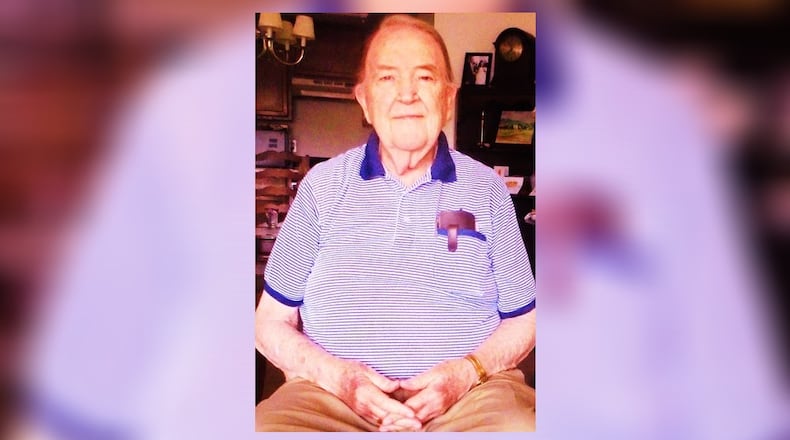“This” was a copy of a Dr. King speech in New York City in 1962 celebrating the Emancipation Proclamation. And Chuck pounded his finger on its opening lines for emphasis:
“If our nation had done nothing more in its whole history than to create just two documents, its contribution to civilization would be imperishable.
The first of these documents is the Declaration of Independence and the other is that which we are here to honor tonight, the Emancipation Proclamation. All tyrants, past, present and future, are powerless to bury the truths in these declarations, no matter how extensive their legions, how vast their power and how malignant their evil.”
We were talking about the Dayton Exchange Club’s longtime promotion of Freedom Shrines in schools, a collection of plaques of the founding documents and words of major figures through the nation’s history. Only Dr. King’s “I Have a Dream” speech is part of that collection. Chuck’s point was that plaques aren’t enough and that Ohio educators had lost touch – he was saying even then – with the principles embodied in these words and Dr. King’s life.
One of the participants in these sessions – eventually called “The Chuck Horn Table” wherever we met – was Richard Schiewetz, the founder of the hugely successful WinWholesale/Winsupply of Dayton. Chuck saw Dick Schiewetz as a prime example of what the truths in the Declaration and other founding documents meant in today’s world and the proof that capitalism was a vital part of it.
It’s not that Chuck was unaware of problems. He wanted our political system to always point toward solutions. But he was always outspoken about his disappointments with fellow politicians whose ethical standards were pliable. He was equally unhappy with those who felt the nation’s founding principles were also pliable. He commented many times that Dr. King’s non-violence ethic was vital for democracy to flourish.
The result was a Republican who was regarded with suspicion and sometimes fear by party leaders. He was always ready for political compromise, but not at the cost of compromising honesty and integrity. One example will suffice. He regarded states competing with one another to, in effect, pay businesses to locate as little more than bribery. You can see how out of step he was in today’s world – even as we regret the erosion of principle.
One of Dr. King’s observations in a 1963 interview was also something Chuck treasured. It was that discrimination can be outlawed but integration cannot be commanded by law. That must come from the heart. “The same is true,” Chuck noted one Saturday, “with honesty and ethics and standing up for the principles that made this country great. Our hearts must be taught.”
Maybe a little remembrance of Chuck will help.
William (Bill) H. Wild is a retired columnist and editor for numerous newspapers throughout his career, most notably as the editorial page editor of the Journal Herald in Dayton and associate editor for the Dayton Daily News.
About the Author

